Call 1300 137 504
You’ll move beyond theory, applying your learning directly to workplace cybersecurity challenges through guided research and practical assessment.
Learn specialist cyber skills to stay current, protect your organisation and build your career.
As cyber threats grow in frequency and sophistication, organisations need capable professionals — not months or years from now, but today.
That’s why BSI Learning has created stackable, SFIA-accredited Microcredentials designed to help professionals build or refresh their cyber capabilities in just 8 hours per module.
Each Microcredential is mapped to the Skills Framework for the Information Age (SFIA) and is verified with accompanying digital badges to validate your skills against the internationally recognised standard.
Whether you’re an existing cyber specialist refreshing your skills, or a new practitioner building foundational or specialist skills, our microcredentials are practical and allow you to learn today and apply tomorrow.
You’ll move beyond theory, applying your learning directly to workplace cybersecurity challenges through guided research and practical assessment.
Duration: 8 hours
Format: Online, self-paced with practical workplace research activities, knowledge checks and assessment.
Topics covered
What you’ll learn
Badges earned
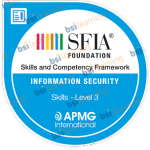
Information Security
(SCTY) – Level 3
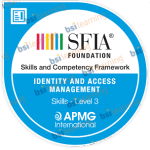
Identity & Access Management
(IAMT) – Level 3
Duration: 8 hours
Format: Online, self-paced with real-world workplace research activities and case-based assessment
Topics covered
What you’ll learn
Badges earned
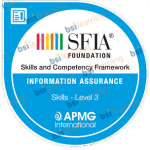
Information Assurance
(INAS) – Level 3

Problem Management
(PBMG) – Level 3
Duration: 8 hours
Format: Online, self-paced with applied workplace research and a real-world assessment.
Topics covered
What you’ll learn
Badges earned
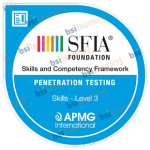
Penetration Testing
(PENT) – Level 3
Duration: 8 hours
Format: Online, self-paced with hands-on tool practice and an applied assessment that compares reconnaissance methods.
Topics covered
What you’ll learn
Badges earned
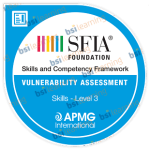
Vulnerability Assessment
(VUAS) – Level 3
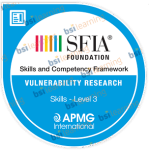
Vulnerability Research
(VURE) – Level 3
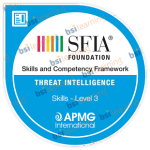
Threat Intelligence
(THIN) – Level 3

Methods & Tools
(METL) – Level 3
Duration: 8 hours
Format: Online, self-paced with hands-on investigation using FTK Imager and an applied assessment in digital evidence analysis and reporting.
Topics covered
What you’ll learn
Badges earned
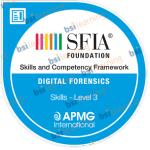
Digital Forensics
(DGFS) – Level 3
Duration: 8 hours
Format: Online, self-paced with applied workplace research and a hands-on case study assessment
Topics covered
What you’ll learn
Badges earned
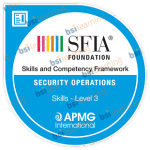
Security Operations
(SCAD) – Level 3

Network Support
(NTAS) – Level 3
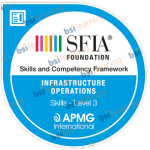
Infrastructure Operations
(ITOP) – Level 3